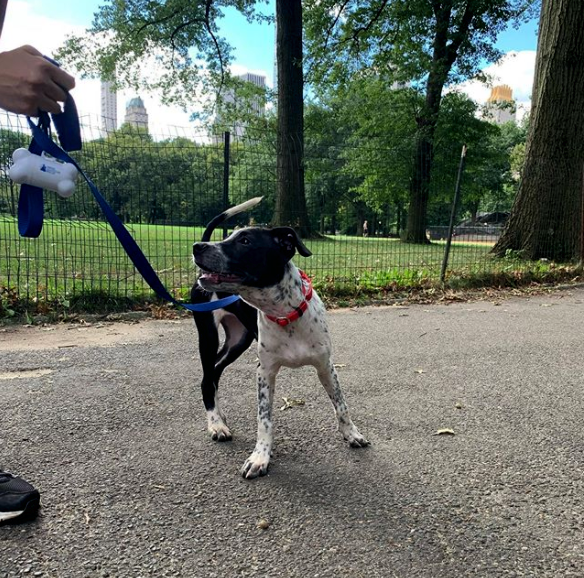photo credit: https://www.instagram.com/nydognanny/ @nydognanny
Bringing home a new dog is magical. It’s the first moment of a bond unlike any other, and whether you adopt an older dog or a puppy, you want to do everything to give them the best life you can. Luckily, it’s simple to keep your dog happy and healthy. Start with these five tips, and you and your pup will be on your way to a long, joyful life together.
Choose a Healthy Food
A good diet is the foundation of your dog’s wellness. To meet their basic needs, choose a food certified by the Association of American Feed Control Officials, which sets standards for pet food. The AAFCO seal means that an animal nutrition expert agrees that the food provides everything your dog needs to be healthy.
Age and activity level are other considerations; there are different foods for puppies, adults, and senior dogs, and active dogs need extra calories and protein. Kibble is a convenient choice, and since the best dry dog food is now made with whole animal proteins, top-quality kibble can be as nutritious as other options.
Get Active Together
Every dog needs exercise! The exact amount depends on your new dog’s age, fitness level, and breed, but you should plan to commit to a daily walk to keep them happy. Frequent exercise supports your dog’s physical health and provides an outlet for their natural energy, which can head off behavioral problems before they start. If your dog is up for adventure every time you grab your keys, you don’t have to limit yourself to a neighborhood stroll! Dogs are great fitness buddies, and once your puppy is finished growing, hiking, running, and bikejoring are all fun ways for you to stay in shape together.
Put Your Dog to Work
Centuries ago, dogs worked in a host of jobs, guarding people, hunting prey, and herding livestock. Even if you don’t have a flock of sheep that needs supervision, your dog will benefit from the mental engagement of having a “job” by bonding with you and keeping boredom at bay. Active pups will love dog sports like agility, flyball, or dock-diving. At home, you can use positive training to teach your dog tricks or feed their meals from puzzle toys.
Socialize Your Dog
Dogs that behave politely in public aren’t just well-trained; they’re also well-socialized. These dogs can sit and stay, but also feel comfortable with strange dogs and humans in a variety of situations, like obedience school, day care, and dense city settings. They listen even when they’re excited, and they aren’t stressed when you leave.
You can start this process by enrolling with your pup at a socialization class after they’re vaccinated. They can learn to play nicely with other dogs and encounter new people in a safe, supervised setting. Older dogs with basic training can accompany you to places like the pet store, so you can expose them to different environments and practice their training under more challenging conditions.
Visit Your Vet Often
You’ll appreciate socialization the most at the vet. During routine appointments, your vet will provide you with preventative medications for heartworms, fleas, and ticks; keep an eye on long-term concerns like cysts and genetic health issues; and offer referrals for behavioral concerns. Many dogs are terrified of visiting the vet, but you can make it easier on them by practicing visits. Stop by the vet’s office occasionally at times you don’t have an exam scheduled so they can acclimate to the environment and staff. Offer treats, praise, and affection at these visits. Don’t worry about looking strange—good vets know that this type of training makes their job easier!
When your dog feels safe at the vet, you’ll feel better about bringing them in for help when they need it, and you’ll be able to focus on your vet’s recommendations instead of managing your dog’s anxiety. Especially as they age, this relationship is key for your dog’s quality of life.
Getting a dog is a commitment, and it can be stressful trying to make all the right choices for them. Prioritizing these five areas of care can guide your decisions so you’ll know you’re on the right track.




